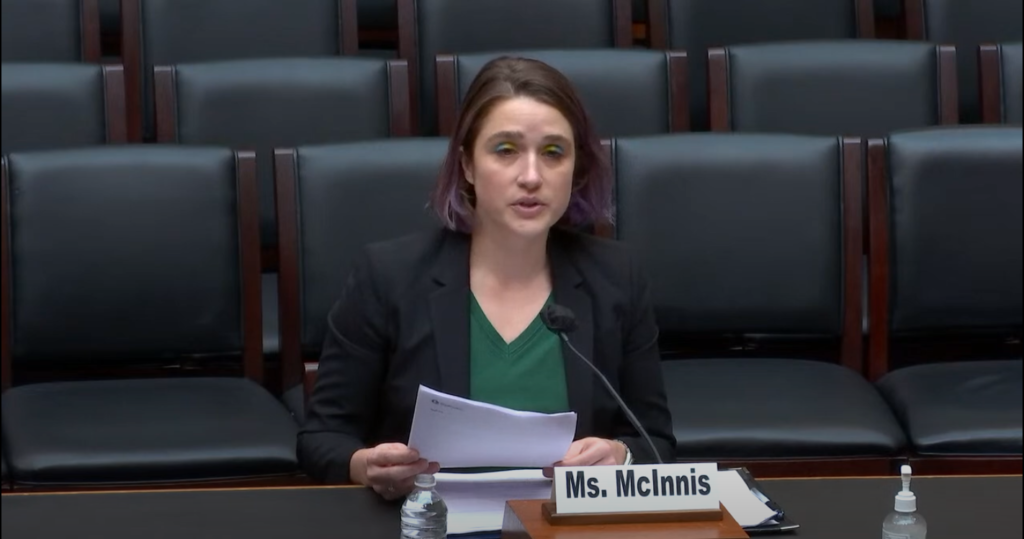Committee Hears Search Engine Maintains Profit While Limiting Targeted Advertising
DuckDuckGo argued that its contextual ads are effective and not intrusive.

WASHINGTON, March 2, 2022 – The House consumer protection subcommittee on Tuesday heard from a search engine company that said it has successfully been able to maintain a profitable business model while limiting the reach of its targeted advertisements.
The committee was discussing the Banning Surveillance Advertising Act of 2022 — a bill sponsored by Sen. Cory Booker, D-N.J., and introduced in January of 2022 — which would outlaw “surveillance” advertising utilized by large tech platforms that passively collects data on users to build a profile, but which is not easily accessible to the user.
The legislation, however, would still allow for limited contextual targeted advertising, which is specifically tailored to what the user is looking at in that moment.
“Virtual advertisements are based on the content being shown on the screen and do not even know anything about you,” said witness Katie McInnis, public policy manager at DuckDuckGo, a search engine that prioritizes consumer privacy.
“So, if you go to DuckDuckGo and perform a search – let’s say you search for mobile phones – we are going to serve you with ads for phones. It is as simple as that,” she said, adding it’s far less invasive than what are called behavioral advertising.
“Behavioral advertising, by contrast, is based on personal profiles from data collected both on and offline about you,” McInnis said. “That’s surveillance advertising. And rather than finding these ads useful, a majority of Americans say that this is a mis-appropriate use of their data. And it’s no surprise as a massive violation of their user privacy and data collection expectations,” she said.
Company says it’s making money
To pass such a bill, legislators would need to know what kind of monetary impact this would have on businesses that rely on advertising models.
Jan Schakowsky, D-Ill., asked whether the search engine has been able to remain profitable despite the limited reach of its advertising model.
“Yes, we are very profitable,” McInnes responded. “Our revenue is somewhere around $100 million per year, we have over 30 million US users in the United States, and they span the whole nation and the political spectrum.”
Rep. Tony Cárdenas, D-Calif., said that he would venture to guess that $100 million “is a slow day for Facebook,” adding, “I pray that DuckDuckGo can actually continue to succeed in this environment, because we are talking about companies that [have a] net worth a trillion dollars or more and the reason why I point that out is because they choose not to use good practices. They choose not to have practices that have respect for other people who are using their platforms.”
McInnis said that if the Surveillance Advertising Act is adopted, it will allow other companies to compete in a more meaningful way and contribute to a healthier online ecosystem overall.
“If this bill was enacted, many companies would be prevented from the collection of online data, meaning that Facebook and Google’s duopoly and ads would be diminished,” she said. “Companies would be able to compete against them more forcefully in the market, and we would have more innovative contextual advertisement services for users, and therefore the ads will be more relevant and more useful to users in the future.”










